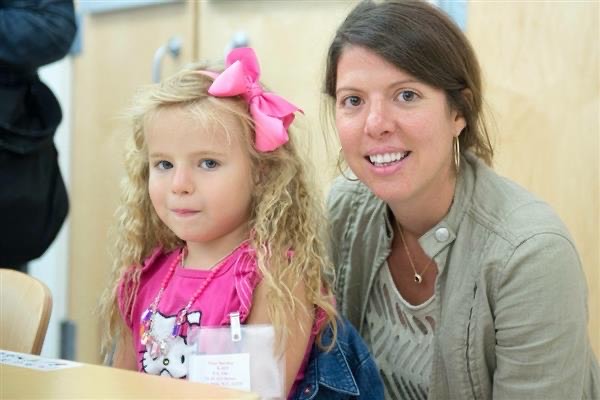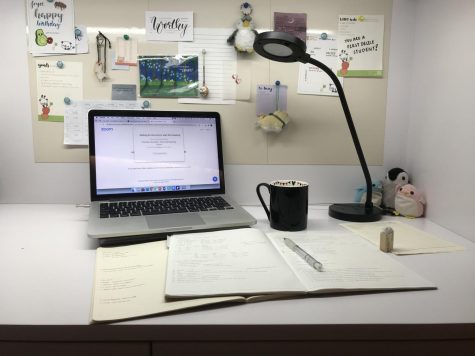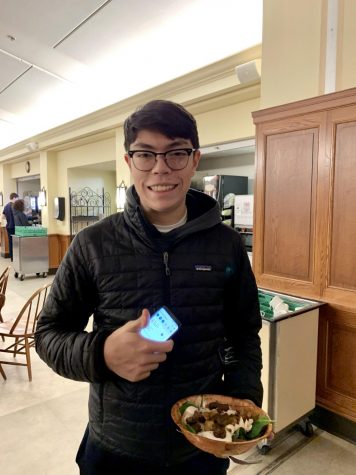Significant changes to the Disciplinary Program
November 11, 2021
With the introduction of the new Handbook, there have been many changes made by the Dean’s Office this year, including a new Disciplinary Committee, new Drug and Alcohol Policy, and new Affirmative Consent Policy.
The Disciplinary Committee has been reformed last year: in the past, there have been two separate bodies, one of students and the other of faculty, each of which would come up with a recommendation for the student in question and deliver it to the head of school. After some evaluation, the Deans thought that the process was “arduous, long and drawn-out,” as Reinhardt says. He described the old procedure as feeling like a “shaming process for the student because they have to go in front of close to 40 people to talk about any incident,” and he also thought the outcomes could at times be “too punitive and not as restorative” as the school would like them to be. Only one body—equal numbers of students and faculty—now makes up the new Disciplinary Committee, and only 8 people in total would hear each case along with the nonvoting Chair of the Disciplinary Committee, Ms. Thomsen. “Each student would come with their advisor and a student advocate, usually their form representative, if they would like to have one,” Reinhardt says. With this new system, not only is the process much more concise and effective, students in question also have the privacy of a smaller hearing and receive recommendations that students and faculty have equal say in.
The Drug and Alcohol Policy is now two-strike: if a student were caught in possession of illicit drugs or alcohol, they would not be immediately dismissed from the school as was the case previously. The Senior Council had strongly argued for this change and proposed a new framework with a more “health-based approach.” Even though the zero-tolerance (i.e. dismissal) policy remains the same for distribution, the school makes sure first-offense students who struggle with substance abuse get ample help and guidance in their path of rehabilitation. A second offense or a subsequent failed drug test will result in dismissal from the school. “At that point, the school is not creating an environment appropriate for that student,” Reinhard explains. “If they’re having such a hard time staying away from drugs and alcohol and are caught multiple times, then this is not the right environment for them specifically and they need to get more support elsewhere.”
The introduction of suspension in Kent School serves as an intermediate step between probation and dismissal. “There may be some offences that require the student to be removed from the community for a period of time,” says Reinhardt. “We want to make sure that we put the appropriate mediation strategies in place and give students the opportunity to regather themselves and take some time off-campus.”
A student being out of the dorm after check-in will often now result in suspension, a higher punishment than it sometimes resulted in in the past. It is a major safety issue in the potential event of emergencies, and many recent disciplinary issues—serious incidents such as sexual assault and drug and alcohol use—have been closely linked with students being outside when prohibited. Reinhardt hopes that suspension can act as a deterrent for students who might be well-meaning, such as wanting to hang out with friends, and prevent any community member from finding themselves in situations where they were forced to make poor choices. “We felt like if we made the deterrent strong enough, students would rethink their actions and help protect themselves,” he says, pointing out the possible influence of peer pressure. There are challenges to this change, especially for domestic and international students who live far away from campus, but the requirement for any student to have a guardian within a 400-mile distance from Kent helps reinforce the implementation.
Another major change is the Affirmative Consent and Sexual Intimacy Policy, which was finalized this year: according to the 2021-2022 Handbook, “given the diversity of social/emotional maturity, age, social norms, cultural, and religious values our students bring to this learning environment, the School does not condone sexual intimacy.” In the new Community Life curriculum, students learn about healthy relationships and adolescent sexuality, while the Counseling Center also offers individual support to all community members.
There are also many minor changes every year: size of televisions, how all students are allowed to have gaming consoles, acceptable use of technology, etc. All changes go through the six Deans to the Head of School to be finalized, but students and other faculty members can also propose changes with a combination of voices involved.






